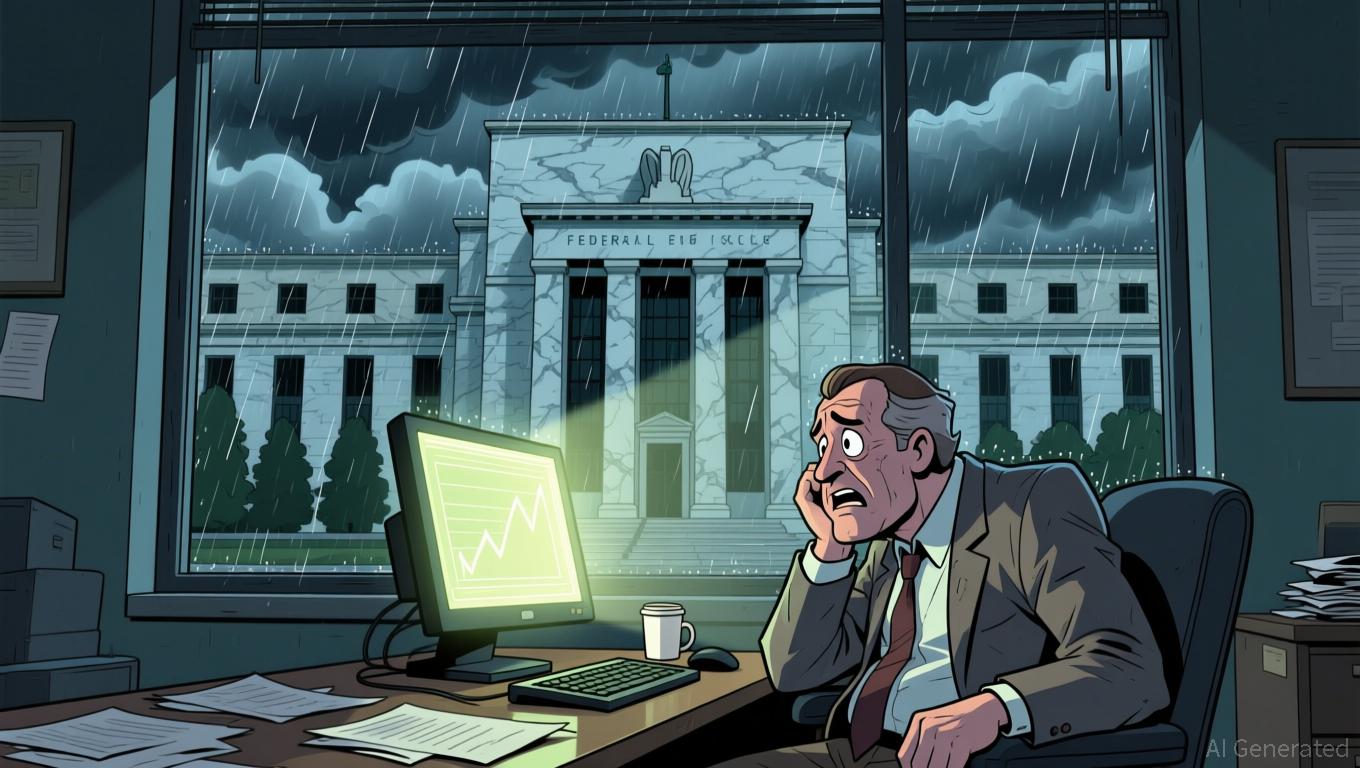Strategy Continues Bitcoin Buying Despite Six Month Stock Low
Michael Saylor's Strategy Inc. purchased 196 Bitcoin for $22.1 million during the week ending September 29, 2025. According to Cointelegraph, the transaction occurred as Bitcoin dropped below $110,000. The company paid an average price of $113,048 per coin.
The acquisition brought Strategy's total holdings to 640,031 Bitcoin. The company purchased these holdings for approximately $47.35 billion at an average cost of $73,983 per coin. Strategy disclosed the purchase through a US Securities and Exchange Commission filing on Monday.
This purchase represents one of Strategy's smallest weekly Bitcoin acquisitions to date. The $22 million transaction continues a pattern of declining purchase sizes over recent months. Bitcoin started the week above $112,000 before falling to $109,800 on Thursday.
Declining Purchase Volumes Reflect Market Pressure
Strategy's modest purchase size reflects broader changes in corporate Bitcoin buying patterns. Cryptonews reports that corporate treasuries now hold over 1 million Bitcoin collectively. However, Strategy's monthly purchases dropped from 134,000 Bitcoin in November 2024 to just 3,700 Bitcoin in August 2025.
The company's stock price also declined during this period. MSTR shares fell to $300.7 on Wednesday, reaching a six-month low. This represents the lowest price level since mid-April 2025. The stock lost 2.9% of its value over the past six months, though it remains up 96% over the past year.
Strategy's reduced buying activity comes as the company manages dividend obligations on its preferred shares. The company raised $128 million during the week but purchased only $22 million in Bitcoin. This approach suggests Strategy is balancing Bitcoin accumulation with other financial commitments.
Corporate Treasury Model Faces Market Tests
Strategy's buying slowdown occurs during a period of transformation for corporate Bitcoin strategies. The company pioneered the corporate Bitcoin treasury model starting in August 2020. Today, over 278 public entities hold Bitcoin on their balance sheets, with total corporate holdings exceeding 1.3 million Bitcoin in 2025.
The current market environment tests whether corporate Bitcoin strategies can maintain momentum during price volatility. Strategy still holds more than half of all Bitcoin held by public companies. The company's average cost basis of $73,983 per coin remains well below current market prices, providing a substantial unrealized profit margin.
Government interest in Bitcoin reserves adds another dimension to the corporate treasury discussion. We reported that 15 US states are moving forward with plans for Bitcoin reserves, with Pennsylvania, Oklahoma, and New Hampshire proposing allocations up to 10% of public funds for Bitcoin purchases. This government activity suggests Bitcoin's role as a reserve asset extends beyond corporate adoption.
Strategy co-founder Michael Saylor maintains his outlook for Bitcoin price appreciation. He predicted Bitcoin would rise toward the end of 2025 after working through current market headwinds. The company's continued purchases, even at reduced volumes, demonstrate commitment to its Bitcoin accumulation strategy despite near-term stock price pressure.
The coming months will determine whether Strategy's approach becomes the standard for corporate Bitcoin holdings or whether market conditions force strategy adjustments. Other companies attempting similar models face challenges maintaining stock premiums relative to their Bitcoin holdings. Strategy's execution and capital discipline set it apart from newer entrants in the corporate Bitcoin treasury space.
Disclaimer: The content of this article solely reflects the author's opinion and does not represent the platform in any capacity. This article is not intended to serve as a reference for making investment decisions.
You may also like
DeFi's Automation Shortfall Addressed: Orbs Introduces dSLTP to Achieve CeFi-Grade Risk Control
- Orbs launches dSLTP, a decentralized stop-loss/take-profit protocol for DEXs, bridging CeFi automation with DeFi. - The protocol automates risk management via on-chain orders, reducing real-time monitoring needs during volatility. - Built on Orbs' Layer-3 infrastructure, it enhances DEX functionality with CeFi-grade tools while maintaining decentralization. - This innovation addresses DeFi's automation gap, potentially driving DEX adoption and institutional-grade on-chain trading.

XRP Latest Updates: XRP ETFs Enhance Market Liquidity, Large Holder Sell-Offs Postpone Price Increases to 2026
- XRP ETFs launched in late 2025 (e.g., Grayscale's GXRP) expanded institutional access, but whale sales delayed price gains until 2026. - XRP traded near $2.12 as 41.5% of its supply remains in loss, with whale-driven volatility and structural supply imbalances persisting. - Ripple secured $500M institutional backing for XRP Ledger infrastructure, while projects like XRP Tundra accelerated tokenization plans. - XRP trails Ethereum in market cap ($129B vs. $373B) due to lack of smart-contract capabilities,

Dogecoin News Today: Grayscale's Alternative Coin ETFs Indicate Change: Bitcoin Withdrawals Differ from Rising Interest in Altcoins
- Grayscale launches GDOG and GXRP ETFs on NYSE, offering direct exposure to Dogecoin and XRP via spot ETPs. - ETFs convert private trusts to public offerings, aligning with industry trends to boost liquidity and attract institutional capital. - GXRP competes with existing XRP products ($422M inflows), while GDOG follows DOGE's rise to 9th-largest crypto by market cap. - SEC's "Project Crypto" framework and FalconX partnership strengthen Grayscale's position in regulated altcoin investment vehicles. - Altc

Bitcoin Update: Federal Reserve Postponements and $1.2 Billion ETF Withdrawals Trigger 26% Drop in Bitcoin Value
- Bitcoin falls 26% to $83,000 amid Fed's delayed rate-cut timeline and $1.2B ETF outflows, marking its longest losing streak since 2024. - Analysts warn of structural risks, with Bloomberg's Mike McGlone projecting a potential $10,000 drop and Cathie Wood revising bullish 2030 forecasts. - Market volatility intensifies as JPMorgan's index exclusion proposal sparks crypto sector backlash and S&P 500 defensive sector shifts highlight interconnected risks. - Fed's December rate-cut speculation and upcoming i
